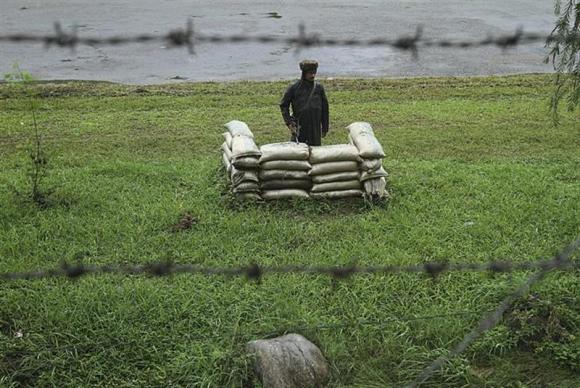
While the United Nations Military Observer Group in India and Pakistan (UNMOGIP) will have to vacate the office building in New Delhi where it had been operating rent-free for the last four decades, following India's instructions, it is debatable whether its role is really over, going by its mandate.
India has, for long, termed the body as defunct and having outlived its role, after the two countries signed the Simla Pact in 1972, wherein they agreed to resolve all disputes bilaterally, including that of Kashmir.
"It is a consistent and long- standing view that UNMOGIP has outlived its mandate," the Press Trust of India quoted Syed Akbaruddin, spokesperson in the ministry of external affairs, as saying.
Pakistan, however, reaffirmed their stand on the need for the group to continue, with Pakistan's Foreign Office spokesperson Tasnim Aslam saying there was no change to the legality of the dispute.
"Asking the UN observers to move out of a building or payment of rent is inconsequential in the context of the status of Jammu & Kashmir. There is a reason why UNMOGIP is present in the first place. Asking them to move out of the building does not abolish the mandate which was given by the UN Security Council in 1951 under Resolution 91," PTI quoted her.
Pakistan's stand on the UN body is based on the guidelines of the United Nations, which had stated that the Observer Group can be terminated only by a decision of the Security Council.
"The first group of United Nations military observers arrived in the mission area on 24 January of 1949 to supervise the ceasefire between India and Pakistan in the State of Jammu and Kashmir. These observers, under the command of the Military Adviser appointed by the UN Secretary-General, formed the nucleus of the United Nations Military Observer Group in India and Pakistan (UNMOGIP), according to the United Nation's website"
It further says, "Following renewed hostilities of 1971, UNMOGIP has remained in the area to observe developments pertaining to the strict observance of the ceasefire of 17 December 1971 and report thereon to the Secretary-General."
In July 1972, India and Pakistan signed an agreement defining a Line of Control in Kashmir, and ever since India has maintained that the UN body's role had ended, while Pakistan still held on to it, having often sought third-party involvement to resolve the burning Kashmir issue.
The UNMOGIP's mandate states that, "Given the disagreement between the two parties over UNMOGIP , the Secretary-General's position has been that UNMOGIP could be terminated only by a decision of the Security Council. In the absence of such an agreement, UNMOGIP has been maintained with the same arrangements as established following December 1971 ceasefire."
This clearly suggests that while the Indian government can bulldoze the UN body out of its office building, it cannot ask the group to leave the country, if it has to follow international protocol.

















